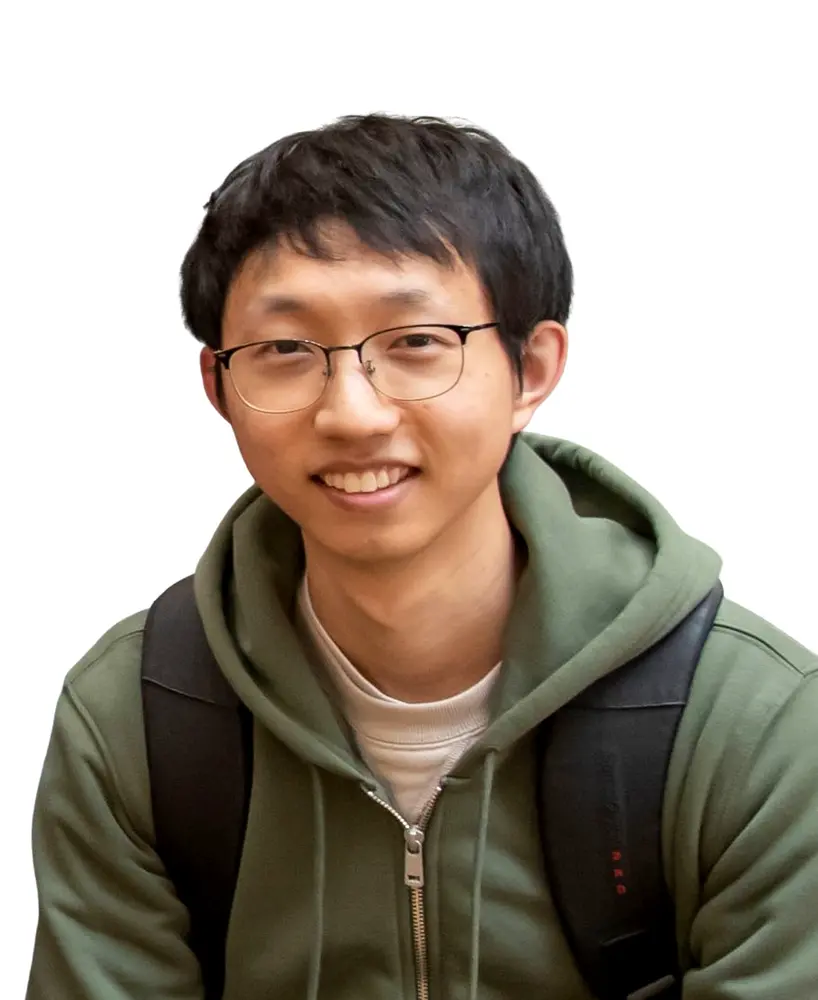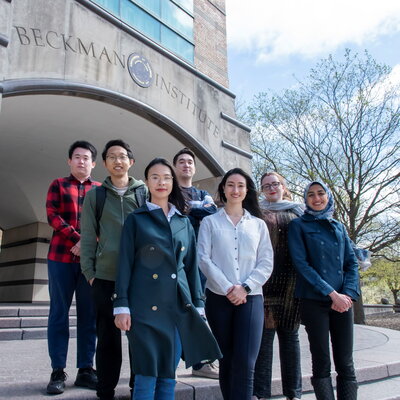
By Jenna Kurtzweil
The best interdisciplinary collaborations are the ones that ask questions, and the seven students awarded 2022 Beckman Institute Graduate Fellowships are prepared to find the answers.
How can brain imaging reveal the relationship between cyberbullying and mental health? What can computer models teach us about treating the flu? Why do electrical engineers and family studies experts make a great team?

The 2022 class of fellows includes: Sohaila Aboutaleb, mechanical science and engineering; Megan Finnegan, psychology and neuroscience; Defne Gorgun Ozgulbas, the Center for Biophysics and Quantitative Biology; Zhengchang Kou, electrical and computer engineering; Jialu Li, electrical and computer engineering; Yunyan Sun, chemistry; and Zepeng Wang, bioengineering.
Yunyan Sun is a PhD student in chemistry advised by Jeff Moore, Stanley O. Ikenberry Endowed Chair, Professor of Chemistry, and the director of the Beckman Institute. Sun earned his BS in chemistry from ShanghaiTech University in China.
In small doses, gaseous signaling molecules like carbon monoxide and nitric oxide can be used as therapeutic agents to treat cancers, infections, and neurodegenerative diseases. To safely deliver these and other drugs into the body, Sun and his team are investigating a type of force-sensitive molecule known as a mechanophore. Earlier in the year, Sun, Moore, and colleagues discovered the first mechanophore to release controlled amounts of carbon monoxide in response to mechanical stimuli.
The study demonstrated how this multimechanophore — called NEO — not only releases controlled amounts of carbon monoxide but also emits a fluorescence visually showing the amount, making the dual-functioning NEO important for fundamental research and for potential biomedical applications that include harnessing the benefits of CO.
Sun’s current research will build on this work to make advancements in targeted drug delivery.
In addition to Moore, Sun will collaborate with Yun-Sheng Chen, an assistant professor of electrical and computer engineering; and Michael L. Oelze, a professor of electrical and computer engineering.
Read about the other 2022 Beckman Institute fellows.